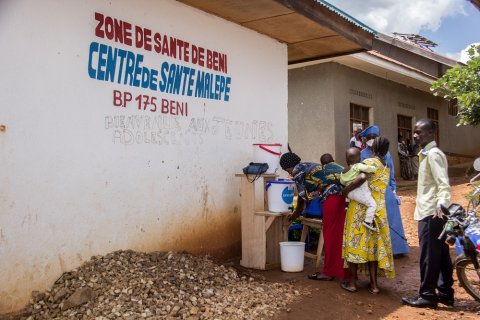Lessons from the field: share your experiences of the current Ebola crisis

This week, we are launching a new article type in our journal Transactions of the Royal Society of Tropical Medicine & Hygiene; “Lessons from the field”.
These short editorial-style articles will share the lessons learnt from fieldwork across the tropical medicine and global health community that will inform others working in similar situations and share advice with the wider community. This knowledge will also help us understand what is needed to make positive change in our field of work, through awareness, funding, research and policy work.
Recently, when speaking to our Fellows, members and partners about the current Ebola outbreak in DRC, many agreed we should be using our journals as a platform to share more directly the experiences and lessons learned from those working on the front line of outbreaks, particularly ones with other external factors such as conflict.
Stories falling through the gaps of research
They felt these stories often fall through the gaps of traditional research and media reporting but are valuable for the global health and tropical medicine communities in improving their response and the way they work.
We are keen to harness and showcase this knowledge in Transactions of the Royal Society of Tropical Medicine & Hygiene as a useful resource for those working in this and future outbreaks.
As an organisation, we are committed to establishing activities and programmes to better engage with our networks, including authors. This is why we feel it’s so important to ensure we hear the experiences and lessons learned directly from those delivering health programmes on the ground.
We hope this will help the community capture and apply lessons to this situation, as well as other disease areas in the future.
Giving weight to the opinions of those in the field
"Lessons in the field" also fit with our goal to ensure we use the knowledge and expertise of our members and networks to try and bring change: in policy, funding, research and awareness.
To ensure our place as an authority and leading voice in the UK on tropical medicine and global health, it is crucial we give weight to the opinions of those in the field carrying out research and delivering programmes.
As has been widely reported, we are in the midst of the second largest Ebola outbreak in history – second only to the 2014 West African epidemic – which the WHO has just declared a public health emergency. Many of our members and partners are working or have worked on Ebola, and many are based in, or have worked in the DRC and neighbouring areas. Many have experience of outbreak situations, across many diseases and decades.
Given the crisis and their collective knowledge, we asked our Fellows and members what they felt we could do to help in a survey that we sent out in May this year.
Desire expressed by partners to share their experiences
Almost all of those who replied felt we should be doing something, and most felt that it should be a combination of short and long-term support. Our partners also clearly expressed the desire to share their direct experience, through our scientific channels. They urged us to ensure that progress and learnings lead to action for future outbreaks.
We would like to invite our Fellows, members and partners to suggest their "Lessons from the field", particularly those reflecting on experiences dealing with the current Ebola outbreak.
Lessons from the field should be between 1,000 and 1,500 words and can have up to five references and one figure or table.
If you would like to discuss your article idea, please contact our Managing Editor, clodagh [dot] mcguire [at] rstmh [dot] org (Clodagh McGuire).
Sign up to our newsletter for more updates